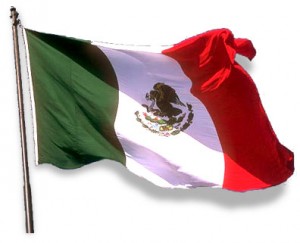 Mexico plans to invest about 334 billion pesos ($27.6 billion) over the next 15 years to increase refining capacity of state-owned oil company Petroleos Mexicanos, or Pemex, particularly for gasoline, according to an Energy Ministry plan.
Mexico plans to invest about 334 billion pesos ($27.6 billion) over the next 15 years to increase refining capacity of state-owned oil company Petroleos Mexicanos, or Pemex, particularly for gasoline, according to an Energy Ministry plan.
Imports of gasoline have surged on local demand and because Pemex’s outdated refineries produce too little gasoline and too much fuel oil per barrel of crude, according to the ministry’s recently published 2010-2025 outlook for refined products noted.
The report highlighted the planned construction of a new refinery near an existing one in the central Mexican city of Tula, where it expects Pemex to produce 250,000 barrels a day of refined products, with a focus on regular unleaded gasoline that will account for about 145,000 barrels a day of the facility’s total output. That will put total Pemex gasoline production at 735,000 barrels a day by 2016, and 750,000 barrels a day by 2025.
“At the end of the period, the expectation is that the production of gasoline will be 64.7% higher than domestic production in 2009,” the report said. Gasoline and diesel will lead the projected 1.7% annual increase in refined products in the period, from an average of 1.139 million barrels a day of crude oil equivalent in 2009 to 1.498 million barrels a day of crude oil equivalent in 2025, it said.
Incoming Energy Minister Jose Antonio Meade, who was named to the top energy post by President Felipe Calderon last week, told reporters this week that the Tula refinery is going forward, and that significant advances will be made this year toward its construction. The new refinery is named Bicentenary because 2010 marked 200 years since Mexico’s independence fight from Spain.
Mexican officials have denied intermittent speculation that the government is looking for an alternative to the Bicentenary’s $10 billion price tag, perhaps through buying an existing refinery outside of Mexico.
Pemex recently tendered a bid for the 14-kilometer wall around the refinery site, and detailed the list of work done toward moving the project forward, including selecting the technologies that will be used. It projected that the refinery construction phase will begin in October of 2012, two months before President Felipe Calderon leaves office, and start up more or less on time in late 2015 or early 2016.
Other refinery projects mentioned in the Energy Ministry report include the reconfiguration of the Salamanca refinery that will add 50,000 barrels a day of capacity and programs for cleaner-burning gasoline and diesel over the next four years.
The ministry said refining operations at the end of the period would consume an additional 357,000 barrels a day of crude oil, for a 28% increase to 1.652 million barrels a day. The biggest spike in crude processing comes in 2016 with the projected startup of the Bicentenary refinery. Pemex plans to ramp up crude production from about 2.6 million barrels a day to 3.3 million barrels a day by 2025, it has said.
Pemex’s reliance on imported gasoline surged at the end of last year, as two of its six refineries underwent maintenance.
In November, Pemex imported 461,000 barrels a day on average of gasoline on domestic sales of 807,000 barrels a day, according to the company’s latest figures. For the first 11 months of the year, Pemex imported an average of 366,000 barrels of gasoline a day on local sales of 796,000 barrels a day. That puts imports for the period at 46% of sales.
For diesel fuel, November’s imports averaged 159,000 barrels a day on sales of 390,000 barrels a day. And for the first 11 months of 2010, diesel imports averaged 104,000 barrels a day on local sales of 370,000 barrels a day.
The refinery maintenance also diverted more oil to the export market, and Pemex’s crude oil sales abroad surged in November to 1.617 million barrels a day, versus the 11-month average for last year of 1.348 million barrels a day.
Pemex has considered importing small amounts of certain light crude oils that would make its older refining operations more efficient, because the company’s oil mix has shifted to heavier crudes since those refineries were built.
But no decision has been taken on the politically charged question of importing oil, which opposition parties have seized on to suggest Mexico is slipping into an era when it will become a net energy importer. Mexican officials deny that will come any time soon, if at all.
Source: http://www.downstreamtoday.com/


